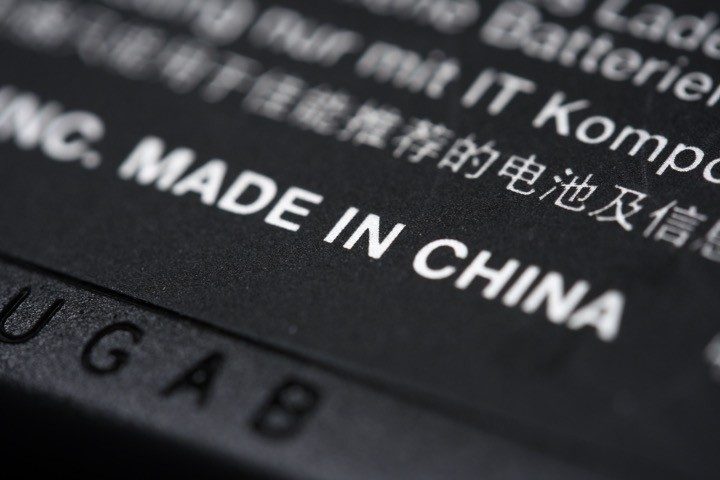
In 2012, UniEnergy Technologies, an American company based in Mukilteo, Washington, began building a battery — a vanadium redox flow battery — based on a design created by U.S. scientists at the Pacific Northwest National Laboratory. Ten years later, the U.S. Department of Energy (DOE) inexplicably gave this tech to China while preventing American companies from manufacturing these batteries.
The government researchers developed the vanadium redox flow batteries using a mixture of fluids that could store almost twice as much energy as existing battery technology, with very little degradation over long periods of time. This discovery could solve the problem of the high cost of replacement of degraded batteries, and could help bring about the widespread adoption of large battery-powered equipment like electric vehicles.
As reported in a recent NPR article:
The batteries were about the size of a refrigerator, held enough energy to power a house, and could be used for decades. The engineers pictured people plunking them down next to their air conditioners, attaching solar panels to them, and everyone living happily ever after off the grid.
“It was beyond promise,” said Chris Howard, one of the engineers who worked there for a U.S. company called UniEnergy. “We were seeing it functioning as designed, as expected.”
First, it took six years of effort and $15 million in U.S. taxpayer funding before researchers created a high-powered battery using vanadium that could last for up to 30 years. The lead scientist on the project, Gary Yang, secured a license from DOE in 2012 to manufacture the batteries, and established UniEnergy Technologies.
Yang was having trouble lining up American investors for the battery project until Chinese money came on board thanks to businessman Yanhui Liu and his company, Dalian Rongke Power Co. Ltd.
“I talked to almost all major investment banks; none of them (wanted to) invest in batteries,” Yang said in the NPR interview. He said that that the banks wanted a return on their investment faster than the batteries would turn a profit.
Rongke Power began providing money for the project, then became involved in the manufacturing, and eventually was doing nearly all of the manufacturing. In 2019, UniEnergy told its engineers they would have to start living and working in China for four months out of each year. UniEnergy was no longer making enough batteries at its U.S. facilities to meet the terms of its DOE license.
In 2021, Yang decided to completely cut American workers out of the equation by transferring his license to Netherlands-based Vanadis Power, which had a long-term plan to shift some manufacturing from China to Germany, and then eventually back to the United States. Vanadis executives said the German stage of this plan had to come first due to European Union (EU) manufacturing requirements.
Now with the newly designed vanadium redox flow battery being made by a Chinese company in Dalian, China, UniEnergy has closed its doors in Washington state and filed for Chapter 11 Bankruptcy.
As reported by NPR:
The Chinese company didn’t steal this technology. It was given to them — by the U.S. Department of Energy. First in 2017, as part of a sublicense, and later, in 2021, as part of a license transfer. An investigation by NPR and the Northwest News Network found the federal agency allowed the technology and jobs to move overseas, violating its own licensing rules while failing to intervene on behalf of U.S. workers in multiple instances.
In 2021 someone from UniEnergy emailed the DOE that the battery developed with American science and taxpayer funding would now belong to a Chinese company and its European partner. “We’re working to finalize a deal with Vanadis Power and believe they have the right blend of technical expertise. Our transaction with Vanadis is ready to go pending your approval….”
The DOE responded that they “needed confirmation before transferring the license and emailed a second employee at UniEnergy. The second employee responded an hour and a half later, and the license was transferred to Vanadis Power,” according to NPR.
It seems that no one at the DOE checked whether Vanadis Power was an American company, or whether it intended to manufacture in the United States. The company’s website indicated it planned to make the batteries in China.
The DOE said that new rules were put in place last summer by the Biden administration to close loopholes and keep more manufacturing here. They also stated that their “reviews often rely on ‘good faith disclosures’ by the companies, which means if companies such as UniEnergy Technologies don’t say anything, the U.S. government may never know.”
In 2018, the Government Accountability Office found that the DOE lacked the resources to properly monitor its licenses, due to antiquated computer systems and poor, inconsistent policies across its labs.
When American company Forever Energy raised concerns about the license with UniEnergy more than a year ago, the company’s chief financial officer, Joanne Skievaski, said she and others repeatedly warned DOE officials that the UniEnergy license was not in compliance, even after the DOE said UniEnergy was.
As reported by NPR:
“How is it that the national lab did not require U.S. manufacturing?” Skievaski asked. “Not only is it a violation of the license, it’s a violation to our country.”
Now that the Department of Energy has revoked the license, Skievaski said she hopes Forever Energy will be able to acquire it or obtain a similar license. The company plans to open a factory in Louisiana next year and begin manufacturing. She bristles at the idea that U.S. engineers aren’t up to the challenge.
“That’s hogwash,” she said. “We are ready to go with this technology.”
A technology website, The Register, shared last week that while some vanadium redox flow batteries are made in the United States, there are currently no U.S. production sites specifically for this type of battery technology.
This is just another sad story of our inept, if not corrupt, government allowing the ever-so common practice of Chinese technology theft. All at the cost of taxpayers, U.S. jobs, and American superior technological advancements.





